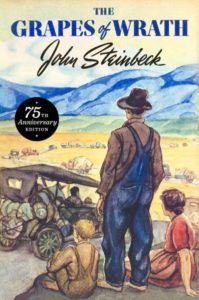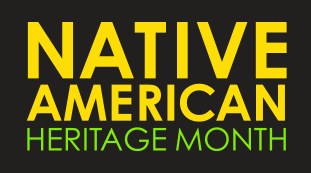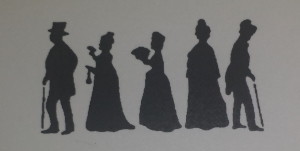Material Memories
In a devastating scene in John Steinbeck’s novel, The Grapes of Wrath, the Joad family, after losing their farm to a bank during the Great Depression, must make decisions about what they can fit into the truck that will take them from their home in Oklahoma to California. The truck does not have nearly enough room to take all of their belongings, so they must make painful decisions about what must be left behind:
The women sat among the doomed things, turning them over and looking past them and back. This book. My father had it. He liked a book. Pilgrim’s Progress. Used to read it. Got his name in it. And his pipe—still smells rank. And this picture—an angel. I looked at that before the fust three come—didn’t seem to do much good. Think we could get this china dog in? Aunt Sadie brought it from the St. Louis Fair. See? Wrote right on it. No, I guess not. Here’s a letter my brother wrote the day before he died. Here’s an old-time hat. These feathers—never got to use them. No, there isn’t room.
How can we live without our lives? How will we know it’s us without our past? No. Leave it. Burn it.
The scene not only raises the importance of memory and its role in family history, but it also shows how much of our memory is tied up in physical objects. For the women sorting through the belongings, the book Pilgrim’s Progress is not an allegorical story about a character traveling through life but rather is a book that invokes memories of their father, who owned and cherished it. The china dog raises memories of a family member who once had the good fortune to visit a world’s fair and thus represents a modicum of success for the family, no matter how humble. Some of the objects, like the angel, hold painful memories.
The objects testify and serve as proof that such events in the past actually took place. Even more, the objects store these memories and hold them for the next time an eye lands on them or a hand pulls them out of a box. But once they go up in smoke, what happens to the memories?
We tend to think of memory as purely a mental exercise, but many of our memories are embedded in physical objects. Look around a room in your house and focus on a particular object. It’s nearly impossible to look at that object and not have the memory of how you acquired it, how long it has sat there, or why it was placed there in the first place come to mind. We surround ourselves with objects we acquired at various points in our lives because they help us remember those moments, moments that have passed us by and can never be recovered except in our memories.
Industrialization in the nineteenth century led to an explosion of mass-produced objects that quickly populated our houses. When we think of a classic Victorian interior, the room is dark and packed with furniture and decorative items. Today, our rush into the digital age and greater environmental awareness has led to devaluing physical objects in favor of virtual ones. But what happens to the memories of our lives when they lie buried behind a computer screen in places we may never visit again? And if we lose easy access to our memories, how accurate will the narratives that we necessarily create about our lives truly be?
In having to burn and leave behind items from their past, the Joad family realizes that they are losing more than the objects themselves. They are losing their family history and the ability to tell those stories. And that’s what makes the scene so devastating.
–Anthony Vaver, Local History Librarian
Recommended Reading (and Viewing):
- The Grapes of Wrath by John Steinbeck.
- All That She Carried: The Journey of Ashley’s Sack, a Black Family Keepsake by Tiya Miles.
- Unchained Memories: Readings from the Slave Narratives (DVD).
- When We Are No More: How Digital Memory Is Shaping Our Future by Abby Smith Rumsy.
* * *
Native Americans in the Parkman Diary
Lately, I have been busy refreshing the Ebenezer Parkman Project website by making it easier to navigate and adding new content created by Prof. Ross W. Beales, Jr., an expert on Parkman and Westborough during the colonial period. The website has received national attention and is the best source for studying colonial life in a rural New England town.
Some of the additions I have recently added include a series of entries in Parkman’s diary where he talks about Native Americans. November is National Native American Heritage Month, so it is the perfect time to start exploring how Westborough’s early colonists thought about and interacted with the native people who also lived in the area.
* * *
Westborough Nature in November
Connect with nature in Westborough with Annie Reid’s “Nature Notes” for the month of November in hand: https://westboroughlandtrust.org/nn/nnindex?order=month#November.
And especially celebrate the season with her article on turkeys!
* * *
Westborough Historical Society’s Annual Holiday Bazaar
Every year the Westborough Historical Society holds a Holiday Bazaar at the Sibley House on 13 Parkman Street. This year, the sale is taking place on Saturday, December 4 from 9 a.m. to 1 p.m. The sale includes antiques, knick-knacks, and other fun items. Stop by and see if you can find that special gift for someone that can’t be found in a big box store!
* * *
Did you enjoy reading this Westborough Local History Pastimes newsletter? Then subscribe by e-mail and have the newsletter and other notices from the Westborough Center for History and Culture at the Westborough Public Library delivered directly to your e-mail inbox: https://www.westboroughcenter.org/subscribe-to-updates/.




I found this to be a particularly poignant entry Anthony. I have just finished sorting through an old trunk of memories, and it was challenging to cull through the mementos to figure out which to discard and which just couldn’t let go of. I imagine the pain of having to leave valuable mementos behind forever. I think of how all our photos are now on computers or other devices, unavailable to hold in our hands. I miss the tactile experience of those memories.
Thanks, Anne. I have the same problem, even when I’m bound and determined to clear out my closets and create more space! I plan to write more about the connection between the material world and our memories in future newsletters. Thanks again for your comment!